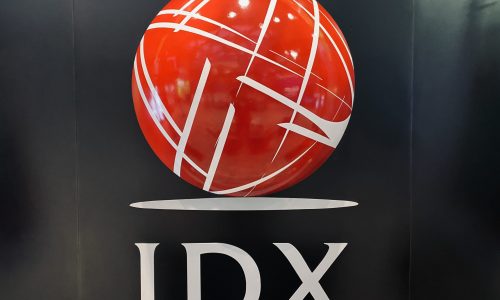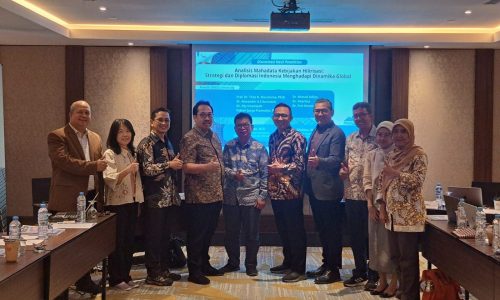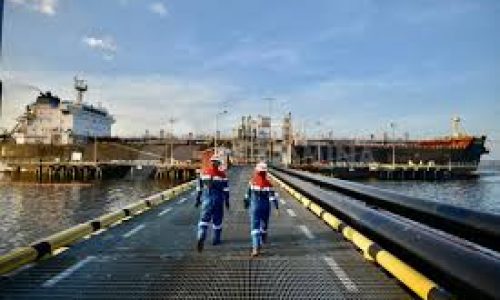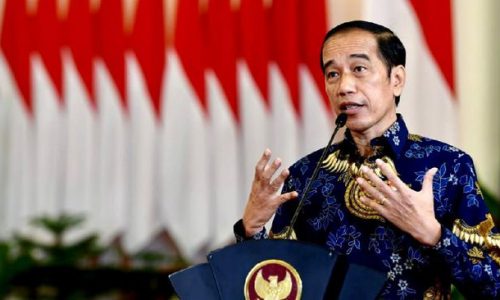Investment in upstream oil and gas exploration has been on a positive trajectory, impacting new discoveries of oil and gas field, a senior government official says.
Deputy for Exploration, Development and Management of Working Areas at the Upstream Oil and Gas Regulatory Task Force (SKK Migas), Benny Lubiantara, revealed that exploration investment in 2021 was recorded at US$ 600 million. It increased to US$700 million in 2022 and again increased to US$900 milllion in 2023.
“The exploration investment target in 2024 has increased by 100 percent to US$1.8 billion (Rp28.3 trillion). If the figures are drawn from data since 2021, exploration investment has increased by 300 percent,” Benny said on Wednesday, October 23, 2024.
The impact of these massive exploration investment activities is that Indonesia has harvested new oil and gas discoveries, two of which have turned out to be giant discoveries, namely the Geng North Field in East Kalimantan and the Layaran-1 Field in Aceh.
Therefore, the significant increase in oil and gas reserves is good news from the upstream oil and gas sector as it can provide significant support in the government’s efforts to realize energy security.
Benny added that the high contingency resources produced will be valuable capital to encourage sustainable exploration in the future. As of September 2024, there was an increase in contingent resources of 1,199 million barrels of oil equivalent (MMBOE) and the reserves replacement ratio (RRR) reached 140 persen of the target set in 2024.
Contingent resources are reserves of resources such as oil, gas, or minerals, which have been discovered, but cannot yet be exploited commercially.
These resources may not be produced for various reasons, such as inadequate technology, pricey production costs, or due to regulatory and environmental constraints.
Benny informed that there are 28 structures targeted to be declared under determined exploration status (PSE)soon, 23 of which are categorized as Contingent resources (CR) of 1,199 MMBOE, and five more structures are in the process of achieving CR status of 13 MMBOE. So it is estimated that by December 2024, the total CR will reach around 1,212 MMBOE.
“With such a large CR, it will open up greater exploration space to obtain oil and gas discoveries in the future and exploration investment can continue to be encouraged to increase because there are so many structures to be explored,” he said.
Benny said that SKK Migas continues to accelerate and seek new ways so that each discovery can be produced immediately to achieve short-term and long-term targets in the long-term plan (LTP).
“We are not just omon-omon (talking), but have done it on the giant discovery of Geng North which only took 10 months since the discovery in October 2023 and the Plan of Development (POD) approval was issued in August 2024. This will be a reference for other POD acceleration efforts,” he said.
Investment approval
Benny said further that the investment approval on the POD that had been approved until September 2024 reached US$31.15 billion (Rp489 trillion).
He compared it with the investment in the Jakarta-Bandung high-speed train which was around Rp110 trillion, so the investment from the approved upstream oil and gas POD until September 2024 was four times higher than investment in the Jakarta-Bandung high-speed train.
The impact of the giant upstream oil and gas investment will of course drive the national economy, strengthen national capacity, create jobs and also the regional economy.
“Talking about the multiplier effect, with the local content requirement (TKDN) of the upstream oil and gas at around 58 percent, it is approximately around Rp280 trillion that could be enjoyed by domestic companies. Not to mention the state revenue and profit sharing received by the regions after these projects, this confirms how important the role of upstream oil and gas is for the country,” Benny concluded.









